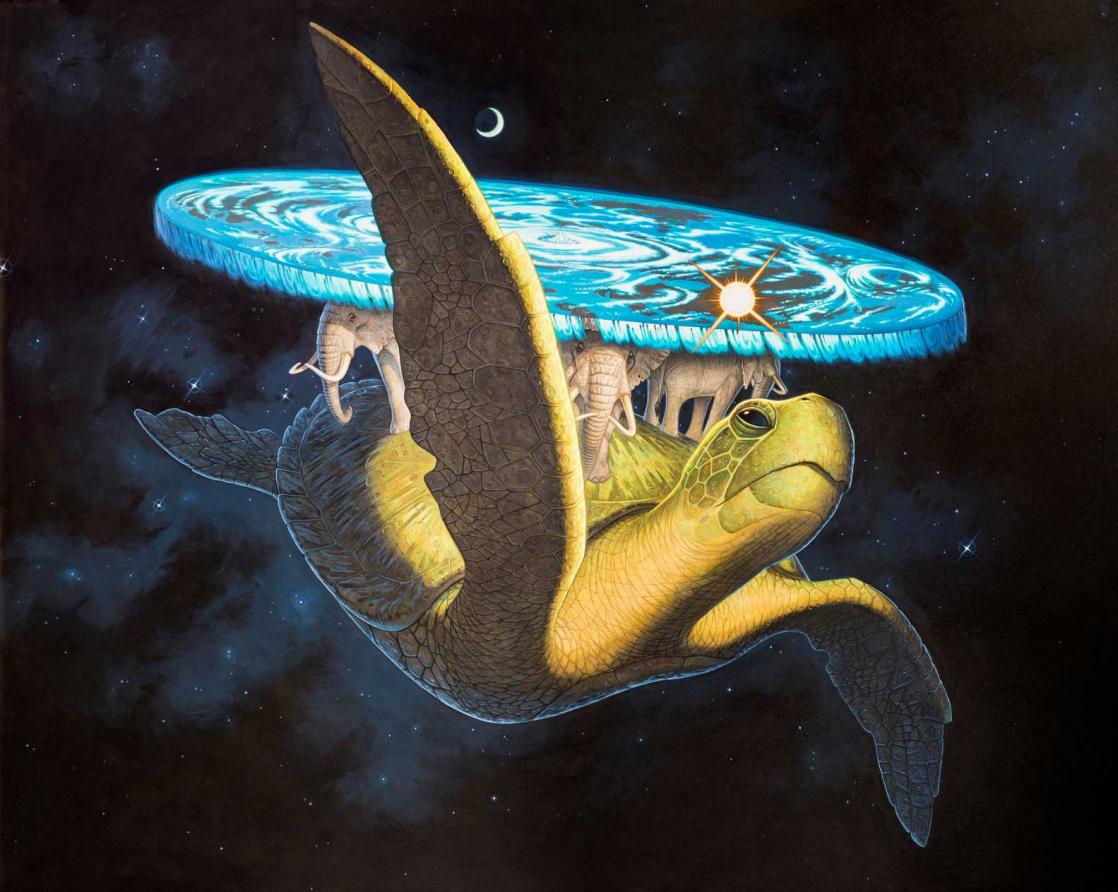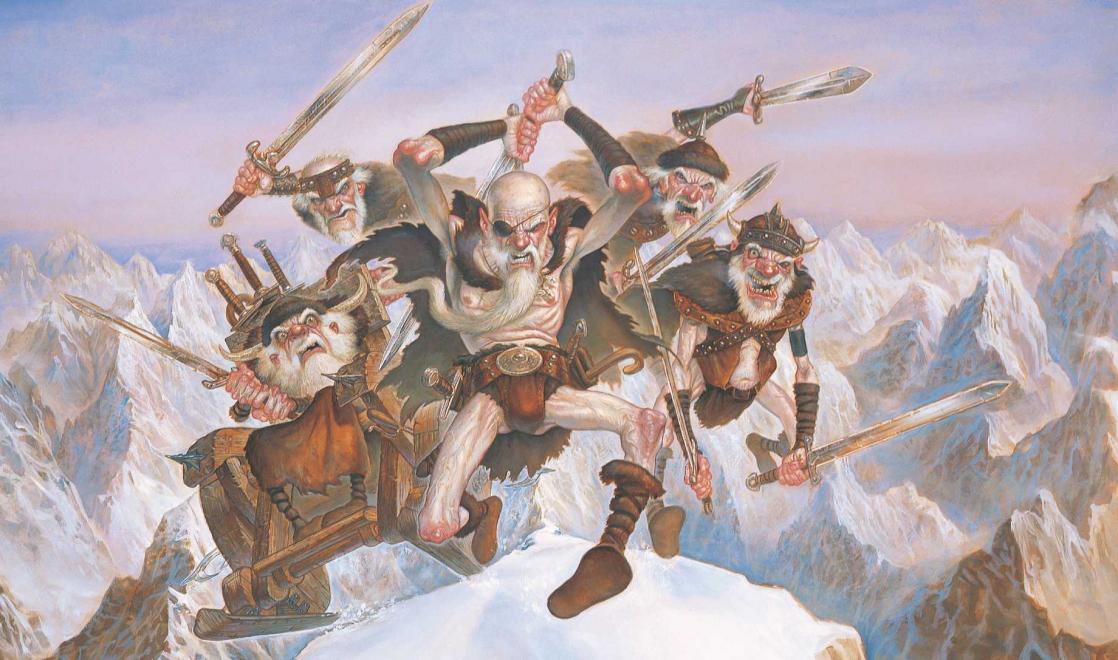Terry Pratchett: King of Satire-Fantasy
A best-selling author, Terry Pratchett created the Discworld series. His sprawling and colorful oeuvre – essentially a spoof of classic fantasy – has become a model of the genre.
A True Classic
Terry Pratchett (1948-2015) is known first and foremost for having created the satire-fantasy Discworld. Appearing in 1983, the strange flat planet, borne on the back of a turtle, seems at first glance to be in the vein of such renowned authors as Lewis Carroll. In his Alice’s Adventures in Wonderland (1865), Carroll intertwined fairy tales and the absurd to poke fun at his contemporaries’ foibles. The filiation is all the more obvious in that the forty-one novels set in Discworld make myriad references to current events, and even to soccer, like in the volume Unseen Academicals! (2009), in which Unseen University sets up a team with the Librarian as the goalie.
A World Firmly Rooted in Its Time
Yet Discworld’s grounding in contemporary fantasy can not be denied. The series got started in 1983, when the genre had been growing as a facet of English-language pop and geek culture for nearly twenty years. It would be adapted into novels, comics, films, role-playing games, and video games.
Discworld spoofed fantasy archetypes from the very first volume (The Colour of Magic, 1983). The character Cohen the Barbarian (a.k.a. Ghengiz Cohen) is portrayed as an older, jaded version of Robert E. Howard’s Conan, created in 1932. This self-referential humor proves that by the time Pratchett had started writing his novels, fantasy had become an independent sub-culture, with its conventions and stereotypes that only fans of the genre could grasp. In that sense, Pratchett’s oeuvre participated in creating a veritable identity for fantasy fandom.
Saga-Sized Satire
Granted, Terry Pratchett wasn’t the first to lampoon a fantasy novel. As far back as 1969, Henry N. Beard and Douglas C. Kenney published Bored of the Rings, a caricature of J.R.R. Tolkien’s Lord of the Rings (1954-1955), of course. And in 1981 in France, Pierre Pelot wrote a short story called Konnar le Barbant. Taken literally, the name could be translated as “Twit the Boring,” but it is also a spoonerism for “Conan le barbare,” Howard’s character’s name in French.
Nonetheless, Terry Pratchett was the first to have created a complex and compelling world entirely composed as one huge parody of contemporary fantasy literature. So throughout the 1980s and ‘90s, Discworld embodied a genre that had become sufficiently lush and complex for it to produce its own self-deprecating humor. Other spoof fantasy worlds would follow, most notably John Lang’s Donjon de Naheulbeuk (2001), which mostly satirizes role-playing games.
The huge success of Pratchett’s tales’ (tens of millions of copies sold) also contributed to reinventing the genre. Nearly three decades after the publication of The Lord of the Rings, it offered a fresh look at fantasy, through a modernist lens. Unlike his elders, the author is no longer actually trying to recreate a mythology, but rather to explore one through a critical gaze that is also quite puckish. Thus his novel Hogfather (1996), for example, echoes James George Frazer’s theories in The Golden Bough (1890), which postulates that myths are the expression of ancient religious rituals.

